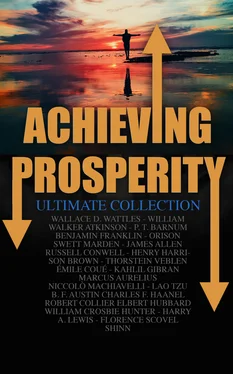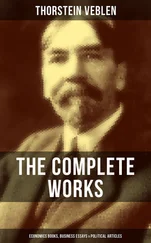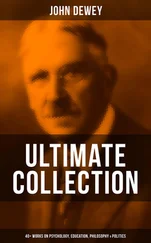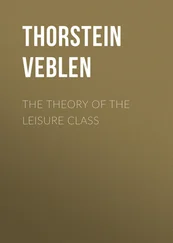Cornelius Agrippa was one of the most celebrated magicians of the middle ages. He lived from the year 1486 (six years before the discovery of America) until 1534, and was a native of Cologne, Agrippa is said to have had a magic glass in which he showed to his customers such dead or absent persons as they might wish to see. Thus he would call up the beautiful Helen of Troy, or Cicero in the midst of an oration; or to a pining lover, the figure of his absent lady, as she was employed at the moment—a dangerous exhibition! For who knows, whether the consolation sought by the fair one, will always be such as her lover will approve? Agrippa, they say, had an attendant devil in the form of a huge black dog, whom on his deathbed the magician dismissed with curses. The dog ran away, plunged into the river Saone and was seen no more. We are of course to suppose that his Satanic Majesty got possession of the conjuror’s soul however, as per agreement. There is a story about Agrippa, which shows conclusively how “a little learning” may be “a dangerous thing.” When Agrippa was absent on a short journey, his student in magic slipped into the study and began to read spells out of a great book. After a little there was a knock at the door, but the young man paid no attention to it. In another moment there was another louder one, which startled him, but still he read on. In a moment the door opened, and in came a fine large devil who angrily asked, “What do you call me for?” The frightened youth answered very much like those naughty boys who say “I didn’t do nothing!” But it will not do to fool with devils. The angry demon caught him by the throat and strangled him. Shortly, when Agrippa returned, lo and behold, a strong squad of evil spirits were kicking up their heels and playing tag all over the house, and crowding his study particularly full. Like a schoolmaster among mischievous boys, the great enchanter sent all the little fellows home, catechised the big one, and finding the situation unpleasant, made him reanimate the corpse of the student and walk it about town all the afternoon. The malignant demon however, was free at sunset, and let the corpse drop dead in the middle of the market place. The people recognized it, found the claw-marks and traces of strangling, suspected the fact, and Agrippa had to abscond very suddenly.
Another student of Agrippa’s came very near an equally bad end. The magician was in the habit of enchanting a broomstick into a servant to do his housework, and when it was done, turning it back to a broomstick again and putting it behind the door. This young student had overheard the charm which made the servant, and one day in his master’s absence, wanting a pail of water he said over the incantation and told the servant “Bring some water.” The evil spirit promptly obeyed; flew to the river, brought a pailful and emptied it, instantly brought a second, instantly a third; and the student, startled, cried out, “that’s enough!” But this was not the “return charm,” and the ill tempered demon, rejoicing in doing mischief within the letter of his obligation, now flew backward and forward like lightning, so that he even began to flood the room about the rash student’s feet. Desperate, he seized an axe and hewed this diabolical serving-man in two. Two serving-men jumped up, with two water-pails, grinning in devilish glee, and both went to work harder than ever. The poor student gave himself up for lost, when luckily the master came home, dismissed the over-officious water carrier with a word, and saved the student’s life.
How thoroughly false all these absurd fictions are, and yet how ingeniously based on some fact, appears by the case of Agrippa’s black dog. Wierus, a writer of good authority, and a personal friend of Agrippa’s, reports that he knew very well all about the dog; that it was not a superhuman dog at all, but (if the term be admissible) a mere human dog—an animal which he, Wierus, had often led about by a string, and only a domestic pet of Agrippa.
Another eminent magician of those days was Doctor Faustus, about whom Goethe wrote “Faust,” Bailey wrote “Festus,” and whose story, mingled of human love and of the devilish tricks of Mephistopheles, is known so very widely. The truth about Faust seems to be, that he was simply a successful juggler of the sixteenth century. Yet the wonderful stories about him were very implicitly and extensively believed. It was the time of the Protestant Reformation, and even Melanchthon and Luther seem to have entirely believed that Faustus could make the forms of the dead appear, could carry people invisibly through the air, and play all the legendary tricks of the enchanters. So strong a hold does humbug often obtain even upon the noblest and clearest and wisest minds!
Faustus, according to the traditions, had a pretty keen eye for a joke. He once sold a splendid horse to a horse-jockey at a fair. The fellow shortly rode his fine horse to water. When he got into the water, lo and behold, the horse vanished, and the humbugged jockey found himself sitting up to his neck in the river on a straw saddle. There is something quite satisfactory in the idea of playing such a trick on one of that sharp generation, and Faust felt so comfortable over it that he entered his hotel and went quietly to sleep—or pretended to. Shortly in came the angry jockey; he shouted and bawled, but could not awaken the doctor, and in his anger he seized his foot and gave it a good pull. Foot and leg came off in his hand. Faustus screamed out as if in horrible agony, and the terrified jockey ran away as fast as he could, and never troubled his very loose-jointed customer for the money.
A magician named Ziito, resident at the court of Wenceslaus of Bohemia (A. D. 1368 to 1419,) appears to great advantage in the annals of these humbugs. He was a homely, crooked creature, with an immense mouth. He had a collision once in public on a question of skill with a brother conjuror, and becoming a little excited, opened his big mouth and swallowed the other magician, all to his shoes, which as he observed were dirty. Then he stepped into a closet, got his rival out of him somehow, and calmly led him back to the company. A story is told about Ziito and some hogs, just like that about Faust and the horse.
In all these stories about magicians, their power is derived from the devil. It was long believed that the ancient university of Salamanca in Spain, founded A. D. 1240, was the chief school of magic, and had regular professors and classes in it. The devil was supposed to be the special patron of this department, and he had a curious fee for his trouble, which he collected every commencement day. The last exercise of the graduating class on that day was, to run across a certain cavern under the University. The devil was always on hand at this time, and had the privilege of grabbing at the last man of the crowd. If he caught him, as he commonly did, the soul of the unhappy student became the property of his captor. Hence arose the phrase “Devil take the hindmost.” Sometime it happened that some very brisk fellow was left last by some accident. If he were brisk enough to dodge the devil’s grab, that personage only caught his shadow. In this case it was well understood that this particular enchanter never had any shadow afterwards, and he always became very eminent in his art.
Table of Contents
WITCHCRAFT.—NEW YORK WITCHES.—THE WITCH MANIA.—HOW FAST THEY BURNED THEM.—THE MODE OF TRIAL.—WITCHES TO DAY IN EUROPE.
Witchcraft is one of the most baseless, absurd, disgusting and silly of all the humbugs. And it is not a dead humbug either; it is alive, busily exercised by knaves and believed by fools all over the world. Witches and wizards operate and prosper among the Hottentots and negroes and barbarous Indians, among the Siberians and Kirgishes and Lapps, of course. Everybody knows that —they are poor ignorant creatures! Yes: but are the French and Germans and English and Americans poor ignorant creatures too? They are, if the belief and practice of witchcraft among them is any test; for in all those countries there are witches. I take up one of the New York City dailies of this very morning, and find in it the advertisements of seven Witches. In 1858, there were in full blast in New York and Brooklyn sixteen witches and two wizards. One of these wizards was a black man; a very proper style of person to deal with the black art.
Читать дальше












